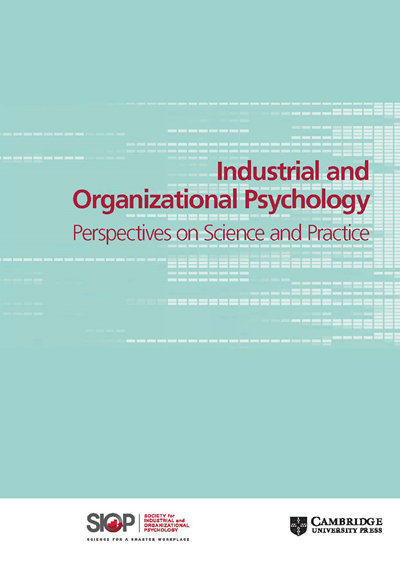I-O心理学的反思:放羊
IF 4.3
3区 心理学
Q1 PSYCHOLOGY, APPLIED
Industrial and Organizational Psychology-Perspectives on Science and Practice
Pub Date : 2023-03-01
DOI:10.1017/iop.2022.92
引用次数: 0
摘要
Hyland(2023)对反思和反思性过程进行了建模,展示了一种方法,通过这种方法,I-O心理学可以更好地为复杂的、多因果的、适应性问题提供创新的解决方案。反思和反身性要求识别偏见、假设、评估结果和调整行动。我们一致认为,科学哲学提供了一个系统的框架,而思考我们设想的未来的挑战是及时的。大约50年前,Kerr(1975)的经典文章指出,在奖励A的同时希望得到b是愚蠢的。如果作为一门学科和专业,我们要意识到I-O心理学在解决复杂的人类问题方面的潜力,那么也许现在是时候做一些其他的事情了。我们同意反思和反思性适合这一目的,需要嵌入课程中。作为教育者和实践者,我们的经验是,它不仅可以被纳入学术和专业准备,而且这样做是有回报的。在批判性反思和反身性的文献中,一个共同的主题是揭示假设:既包括那些我们采取行动但我们不知道的假设,也包括那些我们赞同但没有经过批判性检验和简单接受的假设本文章由计算机程序翻译,如有差异,请以英文原文为准。
Reflection in I-O psychology: Herding sheep
Modelling a process of reflection and reflexivity, Hyland (2023) has demonstrated a means by which I-O psychology can better produce innovative solutions for complex, multicausal, adaptive problems. Reflection and reflexivity call for identification of biases, assumptions, evaluation of Outcome, and adjustment of action. We agree that philosophy of science provides a systematic framework and that the challenge to consider what future we envision is timely. Nearly 50 years ago, Kerr ’ s (1975) now classic article pointed out the folly of rewarding A while hoping for B. If, as a discipline and profession, we are to realize the potential of I-O psychology to address complex human issues then perhaps this is the time to do something other than more of A. We agree that reflection and reflexivity are fit for that purpose and need to be embedded in curricula. As edu-cators and practitioners, our experience is that it not only can be incorporated into academic and professional preparation, but that doing so pays dividends. A common theme in the literature on critical reflection and reflexivity is uncovering assumptions: both those upon which we act but of which we are unaware and assumptions to which we subscribe but have not critically examined and simply accepted as some “ given
求助全文
通过发布文献求助,成功后即可免费获取论文全文。
去求助
来源期刊

Industrial and Organizational Psychology-Perspectives on Science and Practice
PSYCHOLOGY, APPLIED-
CiteScore
7.70
自引率
10.10%
发文量
85
期刊介绍:
Industrial and Organizational Psychology-Perspectives on Science and Practice is a peer-reviewed academic journal published on behalf of the Society for Industrial and Organizational Psychology. The journal focuses on interactive exchanges on topics of importance to the science and practice of the field. It features articles that present new ideas or different takes on existing ideas, stimulating dialogue about important issues in the field. Additionally, the journal is indexed and abstracted in Clarivate Analytics SSCI, Clarivate Analytics Web of Science, European Reference Index for the Humanities and Social Sciences (ERIH PLUS), ProQuest, PsycINFO, and Scopus.
 求助内容:
求助内容: 应助结果提醒方式:
应助结果提醒方式:


